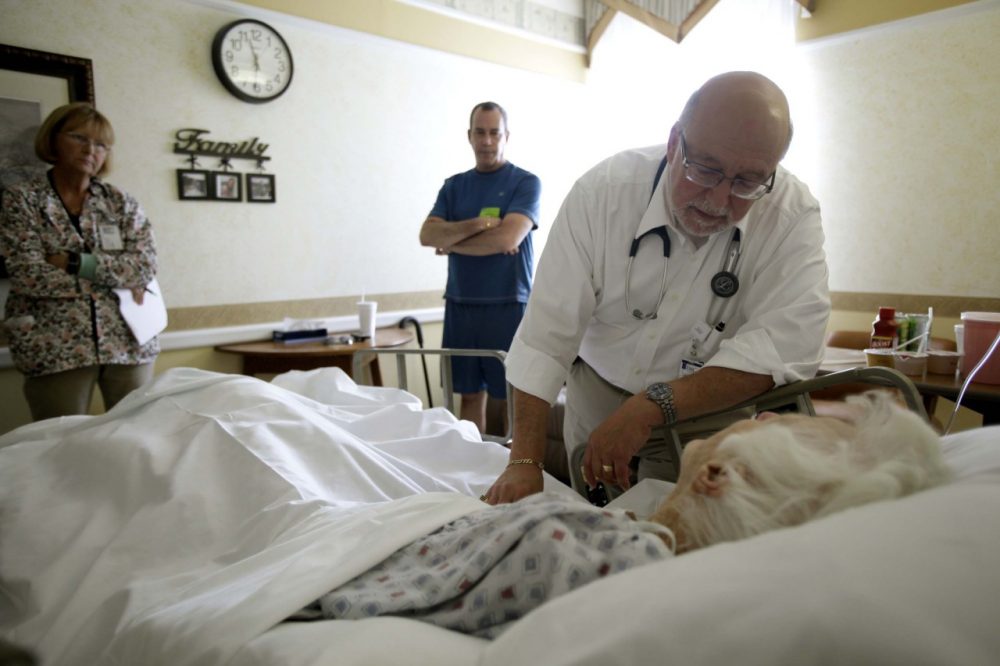Advertisement
Mass. Survey On End-Of-Life Plans Finds Gap Between What We Say And What We Do

In the video below, Dr. Atul Gawande — author of the bestseller "Being Mortal," among many other accomplishments — calls for Massachusetts to become "the leading place in the country for bringing people to write their own script, set their own goals and wishes for the story of their life, all the way to the very end."
A survey out Tuesday by the Massachusetts Coalition for Serious Illness Care, which Gawande helps lead, finds that we're off to a good start, but have a long way to go.
For example, just about everyone — 96 percent of more than 300 respondents — agrees that it's important to have conversations about end-of-life care well in advance. But about 35 percent still haven't, the survey finds.
And among people who recently lost a loved one, just half rated the care the patient had received as excellent or very good.
The coalition is launching a campaign to help people write those end-of-life "scripts," and WBUR's Newscast Unit spoke with Blue Cross Blue Shield of Massachusetts CEO Andrew Dreyfus about the survey. Some excerpts:
-- "I think the most important thing we found is that there's really some momentum growing here in Massachusetts around talking about end-of-life care and serious illness. Our survey found that more people are having the conversation, both with their loved ones and with their clinicians. They're more comfortable having the conversation than they've been in the past. But there are still a lot of barriers to have them, clearly."
-- "I think there's a widespread notion that somehow both patients are afraid to talk with their clinicians about end-of-life care, and that clinicians also are hesitant. But we've found that's not true, that in fact, people want to have conversations with their clinicians, and they're more comfortable raising them and having them than we previously thought."
-- "Almost 100 percent of the people said that conversations with loved ones and with their clinicians are very important. And about half of them had had such a conversation in the past year, and that appeared to be up from the previous year. So we are, again, seeing some momentum."
-- "People who have experienced death with a loved one started to have more conversations about their own wishes and preferences with their clinicians or with their family members. This happened to me in my life, when both my father and my mother passed away pretty close to each other. I started talking with my own family more about my own desires and preferences for care at the end of life."
-- "People just don't want to talk about what a good death might be, but they really want to talk about what a good life would be towards the end of their life. So they're very interested in quality of care issues: Will they still be able to participate in activities that are important to them? Will they still be able to relate to their family in ways that are meaningful? So quality of life is central to what people want to talk about, and want to hear about, in terms of end-of-life care."

